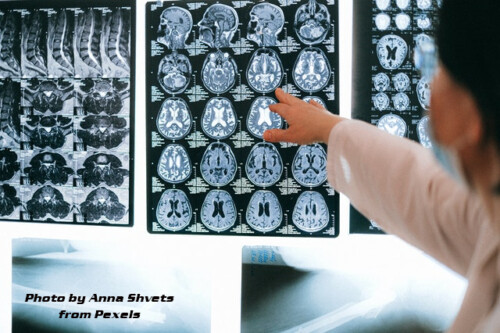Brain Health
Brain Health is an emerging and growing concept that encompasses neural development, plasticity, functioning, and recovery across the life course.
Good brain health is a state in which every individual can realize their own abilities and optimize their cognitive, emotional, psychological and behavioural functioning to cope with life situations. Numerous interconnected social and biological determinants (incl. genetics) play a role in brain development and brain health from pre-conception through the end of life. These determinants influence the way our brains develop, adapt and respond to stress and adversity, giving way to strategies for both promotion and prevention across the life course.
Brain health conditions emerge throughout the life course and are characterized by disruptions in normal brain growth and/or brain functioning. They may manifest as neurodevelopmental and neurological conditions such as intellectual developmental disorders, autism spectrum disorders, epilepsy, cerebral palsy, dementia, cerebrovascular disease, headache, multiple sclerosis, Parkinson’s disease, neuroinfections, brain tumors, traumatic injury and neurological disorders resulting from malnutrition. Health and social care for these conditions require multisectoral and interdisciplinary collaborations with a holistic person-centered approach focused on promotion, prevention, treatment, care and rehabilitation over the lifespan and the active engagement of persons experiencing the conditions and their families and carers, as appropriate.
The global burden of neurological and neurodevelopmental conditions is high, with approximately 70% of the burden in low- and middle-income countries. Neurological conditions are the leading cause of disability adjusted life years (DALYs) and the second leading cause of death globally, accounting for 9 million deaths per year.
The four largest contributors of neurological DALYs in 2016 were stroke (42.2%) migraine (16.3%) dementia (10.4%) and meningitis (7.9%). Epilepsy (5%) ranked fifth. Parkinson’s disease, propelled by an increasingly large ageing population, is the fastest growing neurological disorder. Notably, in Southeast East Asia and Africa, the burden of neurological conditions in children remains particularly large due to premature birth, neonatal encephalopathy and neuroinfections. Developmental disabilities accounted for 13.3% of the 29.3 million YLDs for all health conditions among children younger than 5 years in 2016.
Despite the large burden posed by brain health conditions only 28% of low-income countries having a dedicated policy for neurological diseases in comparison with 64% of high-income countries. Available resources for these conditions are insufficient in most countries and the treatment gap for many neurological and neurodevelopmental conditions is unacceptably high. For example, in low- and middle-income countries, there are only three adult neurologists per 10 million people. In contrast, there are 4.75 adult neurologists per 100,000 people in high-income countries. There are even fewer resources for the assessment and care of children with neurological and neurodevelopmental conditions.
Large, global epidemiologic datasets such as WHO Neurology Atlas have made strides in bringing the true burden of neurological disorders into public awareness. As part of the 11threvision of the International classification of diseases (ICD), the Disorders of the Nervous System chapter saw major changes in organization and content in line with advances in neurological science and contemporary clinical practice.
In February 2020, the 146th Executive Board requested WHO to expand the scope of its technical report on epilepsy by adding a new section on “synergies in addressing the burden of epilepsy and other neurologic diseases”.
In the context of Universal Health Coverage and the SDG 2030 agenda and in line with WHO’s existing mandates for brain health conditions such as autism spectrum disorders, epilepsy, and dementia, WHO’s brain health work is focused on promoting optimal brain development, cognitive health and well being across the life-course. The main activities involve:
- strengthening policies, service delivery, health information systems, technology (including but not limited to artificial intelligence, e-health and big data), research and innovation, especially in low- and middle-income countries.
- providing technical assistance on how to formulate an integrated approach to brain health conditions focused on promotion, prevention, treatment, care and rehabilitation, focusing on low- and middle-income countries; and
- fostering increased investment and inter-agency collaboration globally as well as the involvement of different specialties and sectors.

